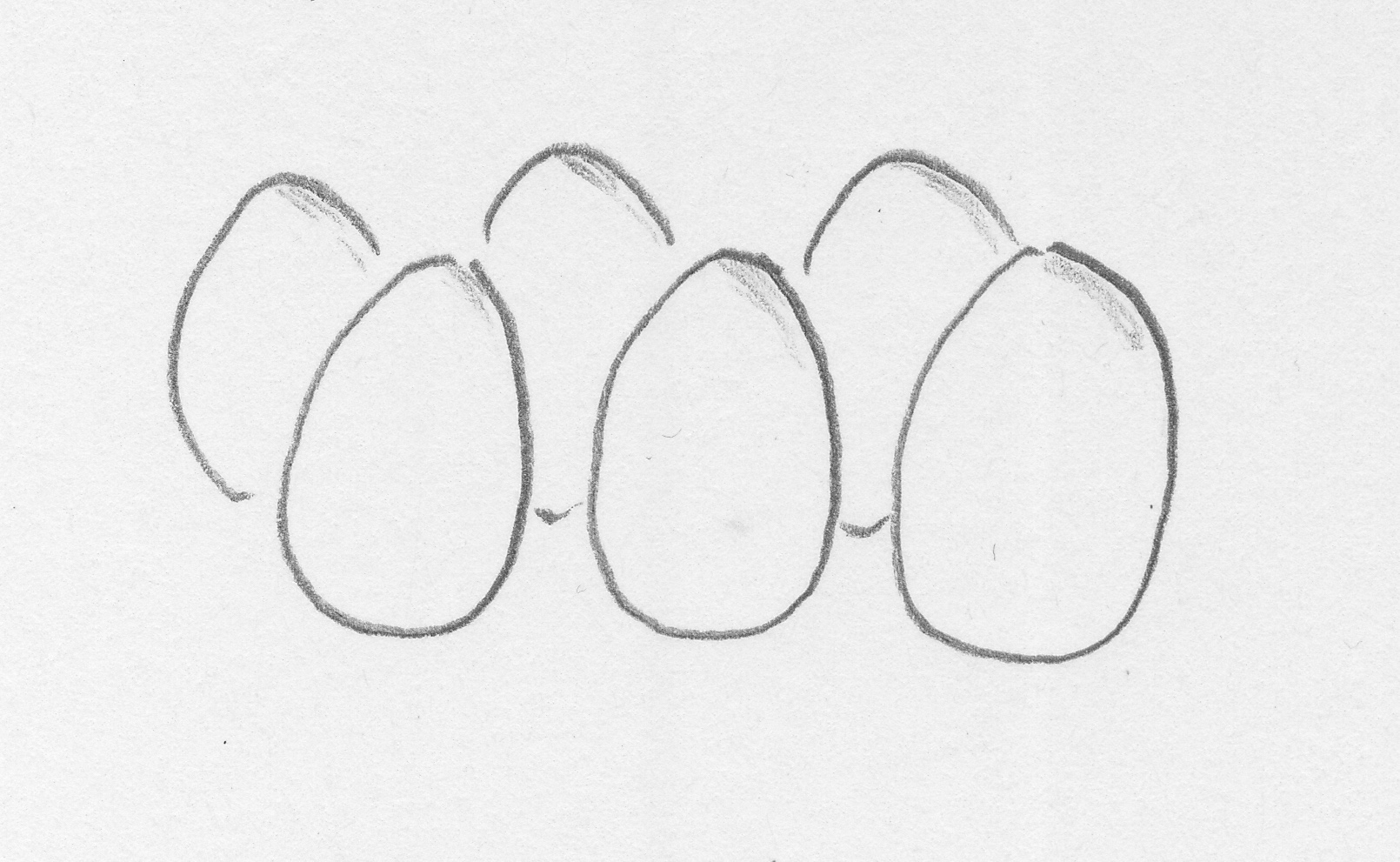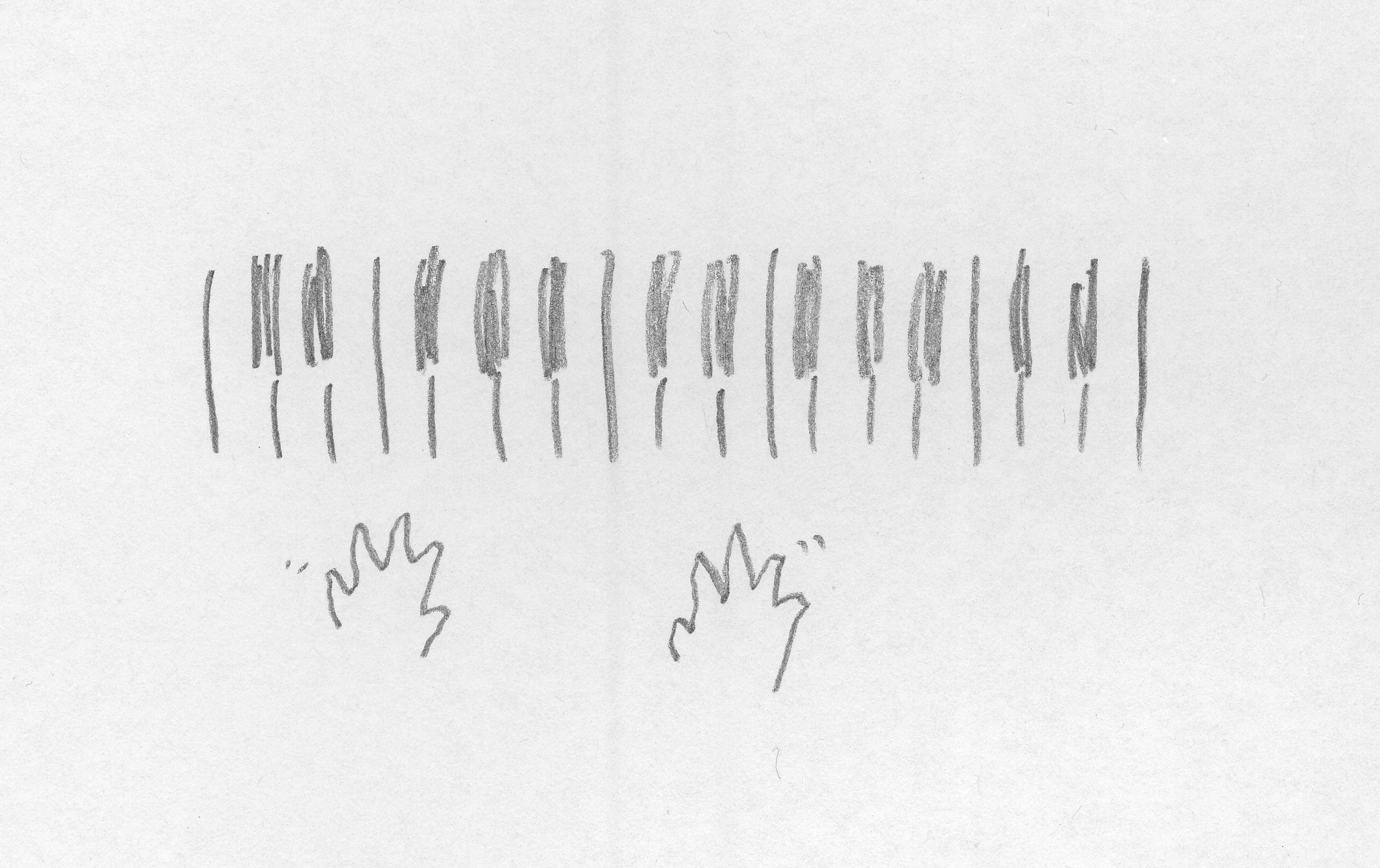 Friends, I hope you had a happy Easter and all that. I mean it’s a few weeks ago and all but still. The school holidays kicked off on Good Friday, but for the first week I was useless because I was totally preoccupied with working towards my recording session on April 5 and 6 (Thursday and Friday of that week), with rehearsals on Monday, Tuesday and Wednesday. (The second week was a completely different story because certain members of the commune decamped to Paris, and I caroused with the two who remained. Blessed times.) The record date’s already three and a half weeks ago but it doesn’t seem so. At long last I was taking the double trio in to the ABC to record with whom you can be who you are. Composed in 2014, premiered then but afterwards put aside until a couple of further performances in 2016, the piece had patiently waited its turn to reach the studio.
Friends, I hope you had a happy Easter and all that. I mean it’s a few weeks ago and all but still. The school holidays kicked off on Good Friday, but for the first week I was useless because I was totally preoccupied with working towards my recording session on April 5 and 6 (Thursday and Friday of that week), with rehearsals on Monday, Tuesday and Wednesday. (The second week was a completely different story because certain members of the commune decamped to Paris, and I caroused with the two who remained. Blessed times.) The record date’s already three and a half weeks ago but it doesn’t seem so. At long last I was taking the double trio in to the ABC to record with whom you can be who you are. Composed in 2014, premiered then but afterwards put aside until a couple of further performances in 2016, the piece had patiently waited its turn to reach the studio.
Organising to record a piece this size is not something to which I am accustomed. I mean it’s a very unusual piece for me to have written, and the composition was a matter of research as well as imagination (phew! I didn’t say ‘inspiration’) so at the outset I was not overly confident about it either. Having worked on it with the original band – Anja Grant (violin), Phoebe Green (viola), Naomi Wileman (cello), Dave Beck (drums) and Ben Robertson (bass) – and finding that although challenging it was not unplayable, I was encouraged. The premiere however did seem like a massive thing to have got through and so I didn’t even try to get it played again for a couple of years. Returning to it in 2016 for two performances at Bennetts Lane, with Zac Johnston taking Anja’s violin chair, it felt better again and definitely by then the idea of getting it recorded was something on which I was beginning to focus.
Much changed thereafter however because neither Ben nor Dave found himself able to commit and I had to find a third violinist too so that rehearsals would be manageable. So the band that went to the ABC earlier this month was Madeleine Jevons (violin), Phoebe and Naomi, Marty Holoubek (bass), Tony Floyd (drums) and myself.
There are seven movements to the piece, each named with the initials of a close friend of mine. Hence the title. I think about friendship a lot, as I wrote shortly after finishing writing the piece, and so to be in the studio with people for whom I have sincerely friendly feelings making this music was a joy that was humbling and immensely gratifying. To have the friends in my life who agreed to have their initials appended to the movements of the piece, and then to feel so incredibly comfortable with the people playing it makes me a very fortunate boy indeed. And at the moment I’m listening through to what we recorded and awaiting the summons to re-enter the studio for mixing and so forth.
So, listening: there are parts that I can’t believe I wrote. Not because they’re great or anything, but more because they do things I never quite expect. I don’t know how I thought to go there, rather than anywhere else. There are a couple of endings that, even though I wrote them, surprise me and sort of even arrest me. I’ve previously said things that even in the saying I admitted I probably shouldn’t say, and, oh well, here we go again. But having written or played music that exists as artefact, as record, one regards it in its solid manifestation with a slightly different eye, I think. There are moments in my solo and trio recordings when I can’t quite believe that what demonstrably – since on record, then undeniably – happened, actually happened. I hesitatingly indulge in a measure of self-congratulation that they did, but I can’t honestly take credit for stuff that occurred because of neural impulses of which I do not feel to be in charge. One trains one’s technique so that hearing and acting move to the closest possible proximity, but that proximity is ideally so abbreviated that actual thought is prohibited. There isn’t time to think. You react. You hear, and you respond. Improvisationally, I get this. I totally get this. I’ve been doing it for yonks. But composition of the kind that made with whom you can be who you are is a very different kettle of fiddlesticks. Someone – I think it was Mickey Tucker, but I can’t be totally certain (and if it was, I don’t want in any way to detract from his wisdom through my shithouse recollection; he is a tremendous musician and a wonderful teacher and he taught me an immense amount) – once said to me that composition is to a degree easier (or, let’s say, more forgiving) than improvisation because right by the pencil you have the eraser and anything ill-conceived in the first instance can be revised before anyone even knows you’ve thought it.* Writing with whom I had the eraser close at hand, and probably I moved from one eraser to the next, in the manner in which you shave frequently enough to have blunted your blade so you reach for a new one.
All composition begins, some wise bastard once said, as improvisation. Good grief I wish I could remember who that was. My memory is clearly not serving me very well these days. Obviously it was an improviser, or someone theorising improvisation, making a case for jazz being awesome, or something along those lines. I’ve read countless shelves of stuff I’ve forgotten and freely I admit this but now and then there’s a nugget I’ve retained without being able to recollect who unearthed it. Exhibit A. Often enough I think of the Saturday Night Live sketch with John Belushi playing Ludwig van Beethoven, deaf as a post when instructed by his maid to eat, but apparently able to hear as he tries out his various ideas, playing for example the first four notes of the fifth symphony, and shaking his head to cast them aside. But there was a moment in which that idea was improvised. He had the idea, he saw its potential, he ran with it.
Not that for a moment I’m trying to compare myself with Beethoven. I mean really. Did you think? Please say you didn’t. But ideas come and you have to work with them as they present themselves and sometimes they’re actually okay. When this album appears, you’ll be able to hear ‘a.o.’, named after a colleague now living in the USA, a fellow piano player with whom I studied as an undergraduate at the VCA. It’s a slightly strange piece that, while tonal, doesn’t completely give its centre away (except perhaps by implication) for some minutes. There are blues choruses (no, really) in the tonic key but as things wind up we’re back in vague-land. At the end of the last iteraton of what might be termed the ‘head’ material, things are extended a little and there’s a resolution to E-flat major. I’m very pleased with this; it seems to work. Similarly, at the end of ‘m.b.’, a set of alternating variations between the string trio and the improvising one, the piano takes the melody initially presented by the violin, but in the second half of this final ‘variation’, there is a manner in which the melody is turned back on itself to create a bit of breathing space before everything is brought to its conclusion. When I hear this it seems right.
I’m really not – repeat, not – endeavouring to rave about my own creative genius here. If I could say that in the cold, bleak light of day I elected to make these things happen in the full awareness not only of their consequences but also of the many and various consequences of what I otherwise might have elected to write – assessing this, rejecting that – I’d be, well, bullshitting. It was late at night. I had coffee and cold and tiredness (but determination) and what I came up with seemed right, just then. And, you know, I’m pleased that it seems right now it’s been played and I can listen to it.
This record will go the way of all my records: briefly in the light with a few appreciative listeners and a sweet notice or two, then will it sink. I don’t care. I honestly don’t. Were I to worry about a Bell Award or an ARIA or whatever I should be much the loser, even if I won. If you play for applause, that will be your reward. We make our work and we give it to the world and it’s there. The end.
* I’m reading this six years later and I’m certain it was Mickey who said this. Why there was any doubt I can’t imagine. I can see him saying it.
30/iv/2018
